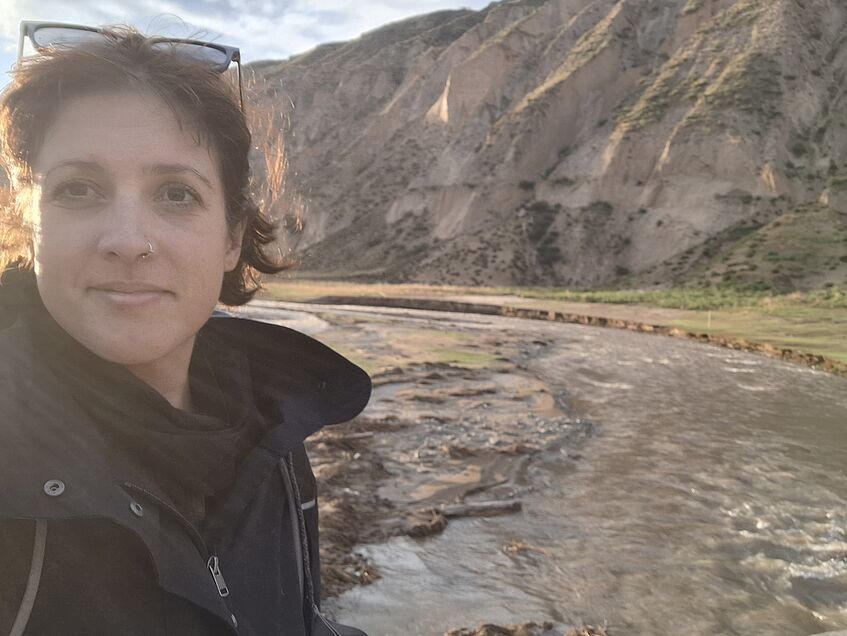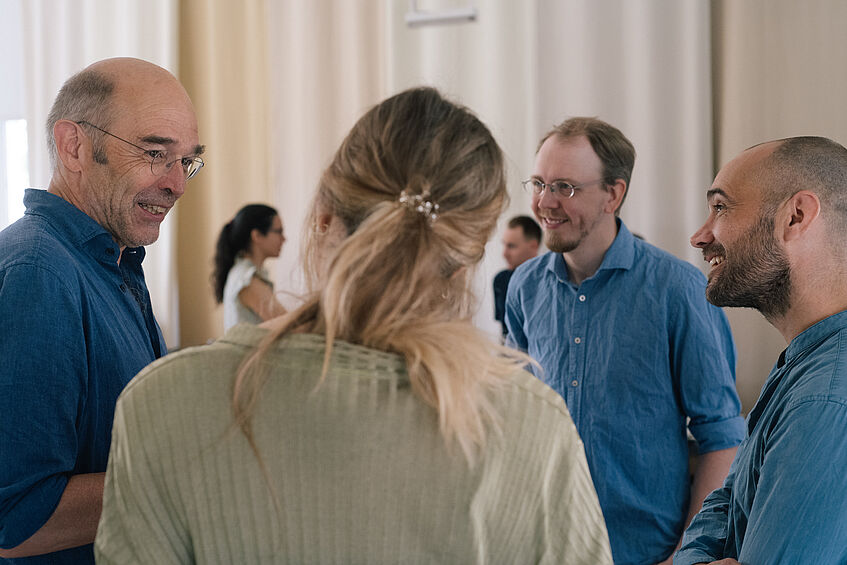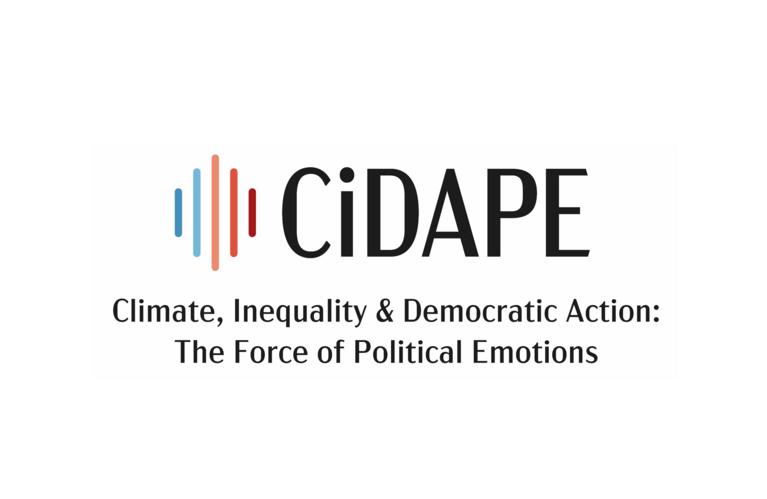The Responsibility to Connect: The Importance of Collective Emotions for Democracies in Times of Climate Change

© Sarah Helena Schäfer
The Responsibility to Connect: The Importance of Collective Emotions for Democracies in Times of Climate Change
"I realised that if you want to do relevant social science research these days, you can't avoid the topic of climate change anymore", Anna said to the students. She started handing out newspaper articles about recent climate protests of Austria's "Last Generation". The "Last Generation" - this irritating flock of overambitious young adults have proven to be a particular nuisance to the public, gluing their hands onto busy streets while the working population got stuck both in traffic and frustration. Or were they perhaps the noble saviours of our planet, finally convincing people that they better switch to public transport from now on? Would roads in Vienna be named in honour of these protesters one day?
Before starting to work for CIDAPE, I was joining one of Professor Anna Durnová's seminars on Discourse Analysis at the University of Vienna. It was late 2023 and she just received the EU Commission's confirmation that her application for the Horizon Europe call on the emotional politics in democracies had been successful. For the next four years, she would lead a consortium of eight work packages spread across Europe to figure out how we can use the power of emotions to overcome this paralysing strain of polarisation in our democracies in times of climate change. Discussing the framing of the newspaper coverage exposed a certain mood among the students. A lot of them seemed sympathetic to the protesters.
We were not the only ones ruminating about the efficiency of these kind of climate protests. A lot of citizens, journalists and politicians in EU countries did the same. And no matter what we all thought about this kind of activism, we all shared one thing: we experienced "climate emotions" because of it. After all, no matter how objectively we try to deliberate on climate issues, as sentient human beings we are also emotional beings. What's happening around us these days - this truly global phenomenon called climate change (for lack of a better euphemism) affects us emotionally not just on a personal level, but on a collective level.
That day in the seminar, I didn't know, that I would soon be able to work for the CIDAPE project as a PhD researcher. I re-joined academic life in my 30s and was probably around ten years older than most of the other students in class. I agreed that "something" needed to be done. I wanted political leaders to step up, take responsibility and have the rich pay for it so that all members of our society would be able to participate in a much-needed sustainable transformation. But in all honesty, I was also incredibly annoyed by the "Last Generation". Their anger made me angry - not so much at politicians but at their protest methods. What good are more traffic jams in dense cities for the climate, I wondered?
Wrapped up in my righteous little cocoon, I kept watching plenty of documentaries about these protests on YouTube- my algorithm quickly understood what kind of late-night entertainment I needed to divert myself from my own responsibility by criticising others. To fall asleep feeling a little less guilty about my full wardrobe, my frequent flights to Asia and the Ipad I was watching this all on. After all, THEY were the ones causing unnecessary traffic jams!
I guess, addressing a problem as complex as climate change either gets you to jump out of your seat, feeling the urgency to act and giving your life to a cause worthy of saving humanity or - it takes the rug out from underneath your feet and in a desperate attempt to find a safe space you simplify. That doesn't just go for conspiracy theorists. For many of us, it seems impossible to deal with this crisis on all its multiple levels simultaneously - our brains are simply not wired for this. The climate emergency triggers a collective "fight or flight" response in us and the emotional dynamics at work here are indicators of our social values. We live in times when U.S. president Donald Trump is forcefully upholding the myth of the American Dream as if it was the 1950s. No doubt, families in middle-class suburbia who remain unwilling to give up their cars in favour of CO2 reduction, will be fuelled (pun intended) with nostalgic sentiments through such narratives.
In CIDAPE, researchers from disciplines such as psychology, the social sciences and humanities as well as civil society actors from the Czech NGO People in Need aim to understand what this means for collective action and democratic participation. To tackle this crisis of our lifetime (and that of future generations), we have a "Responsibility to Connect" and that means, we must understand the societal impacts of climate change not just structurally but emotionally, too. Natural scientists have done an incredible job of making us aware of what is happening to our planet and how we need to solve this problem numerically. But unless we're able to also tackle it from the depths of our hearts, there won't be much use in knowing the "facts".
Last June, our consortium met for the first time for a kick-off meeting in Vienna. None of us knew what to expect, how is everyone feeling about this project or about each other? Of course, everyone was there for the same purpose - to study emotions of climate change and contribute new findings to foster democratic participation and social cohesion - and yes, we all got on great on a personal level. But I'm pretty sure not everyone was as dismissive towards the hardcore climate protests of the "Last Generation" as I was.

Madis Vasser talking with colleagues at the Kick-Off meeting in Vienna. © Lukas Meixner
I can't say for sure. Fear and a sense of repressed shame prevented me from asking anyone about their opinions on that. What I can say, though, is that oftentimes, actions do speak louder than words: Madis Vasser, an engaged environmentalist and member of our advisory board, took a 30-hour bus ride from Estonia to Austria to join the kick-off meeting. Not only was I amazed by his commitment, I also felt guilty about my own travel habits. I take the bus from Vienna to Prague - not to Tallinn!
We can reflect whether this bus ride makes "sense" from a cost-benefit approach. But the emotional tone of such a single action for the common good makes our analysis even richer, it adds colours to the sketches of social behaviour. Studying emotions in democratic action doesn't make our lives simpler necessarily, because emotions are ambivalent - both individually and collectively. But I do think it brings the global issues such as climate change closer to our personal lives, in fact it brings them straight to our bodies. What does it mean for society and the planet to take the bus for 30 hours, willingly accepting back pain, the gag reflex caused by an on-board toilet with questionable hygiene standards and the uncertainty about who will occupy the neighbouring seat for more than an entire day? Madis took his adventurous journey with a sense of humour, though. He told us the bus driver got lost on the way, managed to hit a car in a parking lot and forgot a fellow passenger in a small Polish village in the middle of the night. In his humility, Madis insisted that he didn't try to show off by guilt tripping his colleagues for taking the plane. He himself considered his bus trip "an unremarkable act, really".
I am still overwhelmed by the climate crisis. I still don't understand fully what to do or how we will ever manage to properly heal the planet and ourselves in global unison. One thing is sure though, the emotional strain this crisis causes is shared by everyone. Sometimes hope and compassion are there. Sometimes anger and sadness are there. Sometimes guilt and shame are there. These are not purely individual feelings, they are collective. Ambiguous but nonetheless crucial to understand as we move forward, especially in democratic publics where each voice counts to make a difference. Even if we don't take excruciating bus rides, there are plenty of opportunities to reflect on our agency as democratic citizens. To overcome polarisation, working with emotions in society is inevitable. The aim of a project like CIDAPE is therefore to contribute a better emotional literacy for citizens and policy makers. Or in other words: LET'S MAKE DEMOCRACY GREAT AGAIN.
Sarah Helena Schäfer is a PhD candidate at the University of Vienna. For CIDAPE, she works on theory and methodology as well as science communication. Her PhD thesis is on spiritual climate change discourses with a focus on Tibetan Buddhism.
30.06.2025
